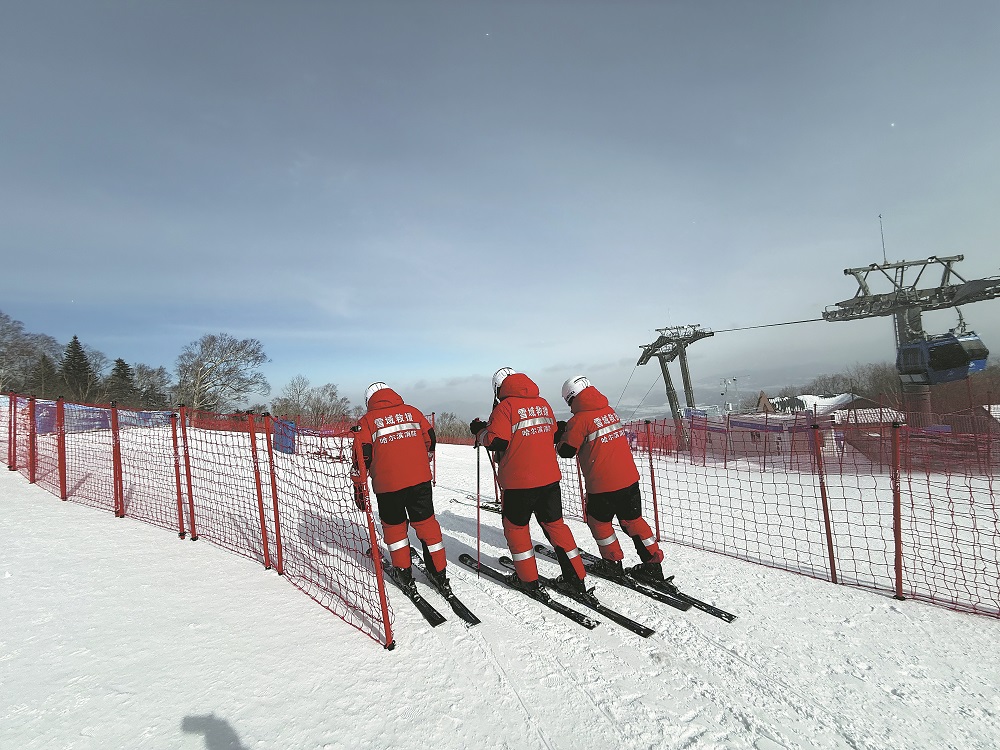Striving for peak performance
After months of grueling training, emergency response teams are ready, reports Li Yingxue.


The Asian Winter Games ski doctor team at the Yabuli Sports Training Base is the second ski doctor team formed in China, following the Winter Olympics in Beijing in 2022.
Comprised primarily of sports medicine and orthopedic specialists, the team initially faced a challenge — varying levels of skiing ability among its members. Ski training quickly became a mandatory course for all doctors.
In the frigid climate of Yabuli, where blizzards are frequent and temperatures can plummet to as low as — 30 C, the ski doctors train under the harshest conditions.
Pan Haile, the head of the ski doctor team and an orthopedic expert at the Second Affiliated Hospital of Harbin Medical University, explained that training runs from 9 am to 4 pm daily, with doctors enduring up to eight hours of rigorous practice.
"It's grueling, especially since we wear minimal clothing and carry heavy medical packs," Pan said. "During competitions, we are required to carry oxygen tanks weighing 30kg, which make training even more challenging."
Beyond basic skiing techniques, the doctors must master advanced skills. They need to be proficient in skiing on steep, difficult slopes, executing rapid stops and performing critical rescue operations like trauma first aid and CPR. According to Pan, the doctors' ability to quickly assess injuries, stabilize patients, and remove them from the course is paramount, especially in a high-pressure environment.
Under the regulations of the International Ski and Snowboard Federation, ski doctors must reach the site of an injury within four minutes of an accident and begin treatment immediately.
"The biggest challenge is not the difficulty of the skiing, but how fast we can assess the situation and begin treatment," Pan said.
In sub-zero temperatures, where hands can become numb within minutes, the complexity of medical procedures increases exponentially.
To sharpen their response times and enhance accuracy, the team undergoes rigorous, repeated training and requires massive levels of stamina.
"We are often required to remain stationary on steep slopes for sometimes four to five hours," Pan revealed.
"After a year of intense preparation, I'm now confident that we have the capability to provide quick, effective, on-the-spot medical support for the athletes."
























